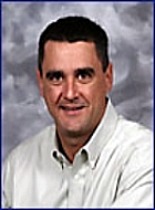Long-serving BDB board member reflects on progress made in local economy
Ed Weinberg has owned and operated his environmental consultancy firm, EW Consultants, in Stuart for 28 years. A father of four and grandfather of five, he’s lived in Martin County since 1989. Throughout, he’s actively engaged with the business community, voluntarily serving on the boards of directors of the Economic Council and the Business Development Board of Martin County.

In fact, Ed’s distinguished service on behalf of the BDB spanned 30 years. He was appointed by Charlene Hoag. The late Martin County commissioner’s legacy of servant leadership is still so admired that each year individuals who’ve displayed similar examples are honored with the BDB’s vaulted Charlene Hoag Leadership Award. Over his time with the BDB, Ed served as chairman twice—in 1999 and 2010.
We recognized him when his role representing the Martin County Commission on the BDB board recently came to a close. Fortunately, he’s remains committed to the BDB’s mission of strengthening the local economy and reflected on some of the major milestones in Martin County’s business community over the years.
You’ve served on the BDB board of directors for 30 years. How have you seen the Martin County business community change over that time?
Slowly and steadily. At the beginning of that time, the BDB was founded in 1991, the very strong initial focus was on Northrop Grumman at the airport, which was almost constantly in a position to shut down or move. We did all we could to make sure the company stayed in Martin County, specifically Witham Field.
How did you try to prevent that?
Ted Astofi (then executive director of the BDB) first established BREC, the Business Retention and Expansion committee. Its function was basically what’s now called Pulse (a BDB service that gathers insights from local businesses on their challenges and strives to provide solutions). Back then, we didn’t have near the options for the collection of data available and the Internet was in infancy. Board members volunteered with Ted to visit the businesses and talk through the issues. We used to joke that that was initiation into the BDB—every board member had to go do it. The model from the beginning has been to retain and help existing business.
Did you focus on contributory businesses (which derive more than 50 percent of their revenue from out of the county), as Pulse does today?
The term of art has changed, but we used to just call it ‘manufacturing businesses.’ Grumman was the big one in the room. And they had 50 different vendors that had built a little park in Stuart. Some of them made 100 nuts and bolts a week and drove them over to Grumman. These weren’t the nuts and bolts you see at Home Depot, but what goes on a jet. We really tried to drill down into those businesses because the owner was usually the one running the machine.
So you prioritized the ancillary businesses supporting the anchor industries like aviation?
Yes, the ones supporting the infrastructure. They were the small entrepreneurs who back then didn’t have the shipping options and connections of today. That guy could make bolts for someone in Seattle now. Back then, there was someone in Seattle doing the same for their local industry.
Do you think the foundation of our economy is stronger today?
Absolutely. Like anything else, your best resilience against economic changes is if you have 100 businesses today and maybe only 10 are affected, you still have 90 businesses. Back then, if Grumman shuts down, everything shuts down. The idea is to build strength and resilience at the bottom. At times, it was just simply, survive—not grow or expand or anything like that. Though Grumman moved, the manufacturing of aeronautical parts and pieces is still taking place there.
How much worse do you think our economy would be without the work of the BDB?
We would have turned into a 100-percent residential community. I think the pressure would have been much higher to do the ‘Browardization’ because you support the economy from the bottom up with commercialization instead of, ‘We have to build more houses or we’re going to go broke.’
You’ve been a big supporter of the new executive director, William Corbin.
I was honored to be part of the selection committee that hied him and very proud that the person we hired has fit so well into the position.
Do you have words of wisdom for your colleagues on the board?
I’ve been very impressed with the coherence of the board, which is very important. We went through difficult periods and that can undermine the effectiveness. It’s more focused now. Looking around the room, there was a period when your appointment to the BDB was a political steppingstone. I get the sense that’s not the case anymore—and that’s a huge improvement. Not to take away from those who want to get involved, but there was a period when it was resume builder. But now it’s people who’ve already have a successful business, know how to run it and want to share—and that makes it more effective.
Learn more about how the Business Development Board of Martin County supports local businesses at www.BDBMC.org
